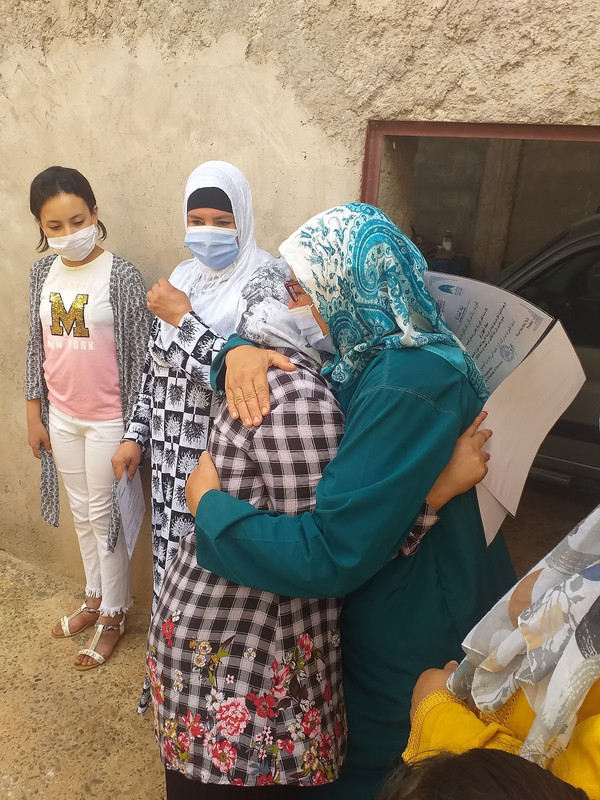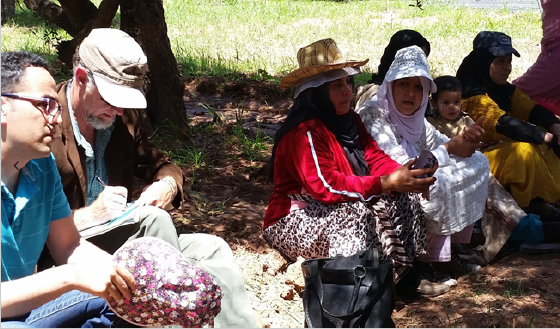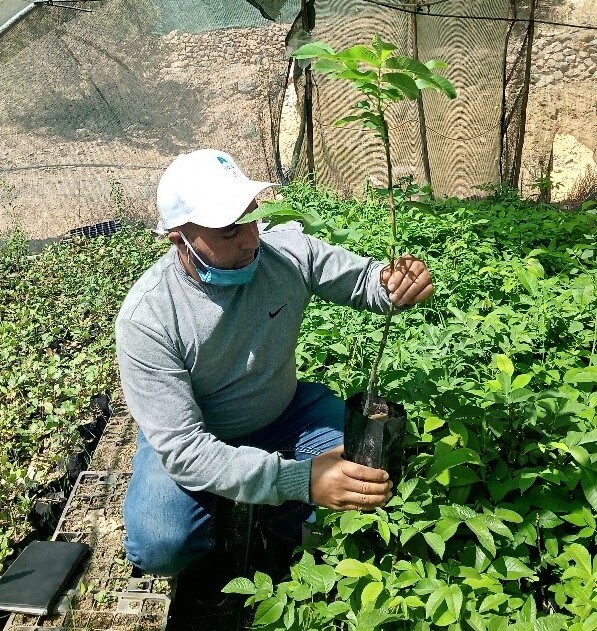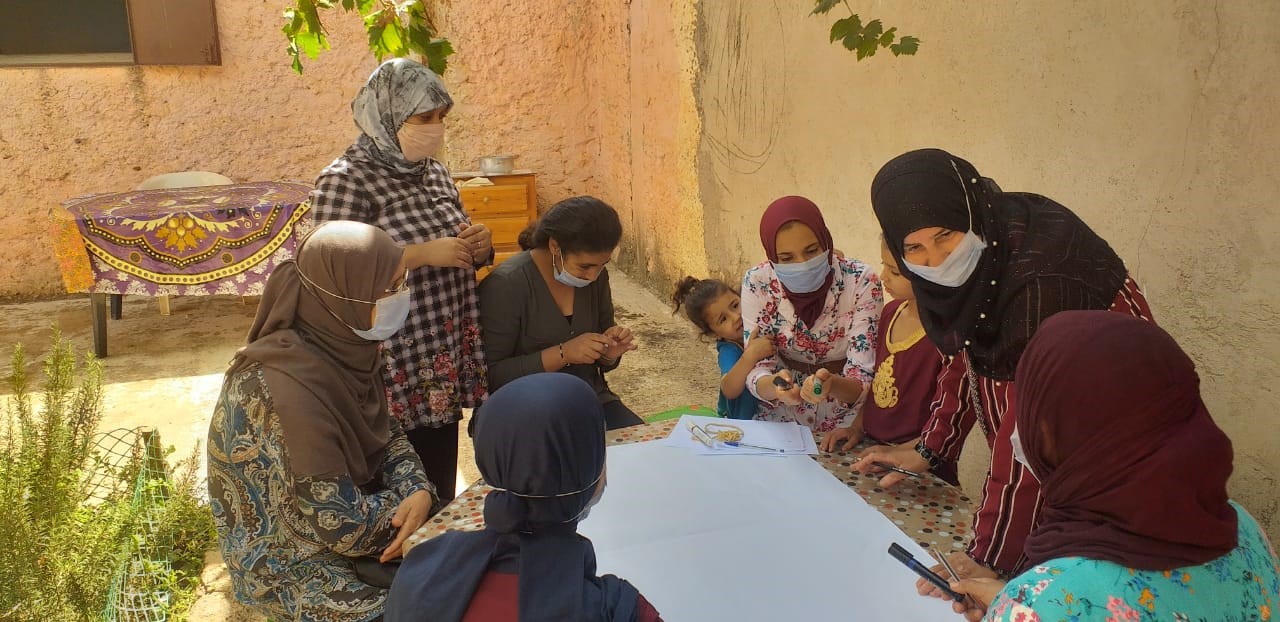On August 27, the High Atlas Foundation (HAF) conducted its twenty-ninth 4-day Imagine Women’s Empowerment Workshop with 21 participants from the Sadaka Slimania Cooperative in Berkane province. The workshop was funded by the USAID Farmer-to-Farmer program which connects U.S. technical expertise to agricultural cooperatives, associations, and initiatives throughout the world.
Sadaka Slimania Cooperative is a cooperative whose members genuinely impressed me. Interaction with and appealing to the people around you during a workshop is an inspiring exercise as a trainer who is still learning from every workshop. The workshop gives a deep understanding, whether to participants or trainers, to think about one’s next step, tomorrow, and future. Briefly, one’s vision!
Bouchakour is a quiet village with green areas surrounded by sizable farms of lemon. With the quietness of nature and trees, you feel the breath of people’s souls–people who are restricted by the beliefs they live with–and beliefs they cannot change or even think to change.
The last word of change during the workshop became a symbol for women to strive as much as possible to achieve their dreams. The women understood the real meaning of change: to start from yourself first, to ask yourself what it is you need and want, how far you are from achieving this dream, and why you might be so far away from realizing these goals.
Every single day, I discovered new souls around me, new smiling faces, and this positive energy seemed to move magically from one participant to another. I asked the women: “What happened to you?”
The majority of them answered me: “We kept all the bad things and all the good things in our hearts. We hurt ourselves because we had no way to express what we feel. We were taught to think only about others, never ourselves, so we felt ashamed to express our feelings no matter how small or significant. NOW we are looking for ourselves in every exercise we do, in every word we hear, and in every affirmation we say. It is our time to wake up!’
Their words impressed me. At the same time, it made me doubt whether they were sure of what exactly they were saying and whether there would be any implementation, any follow-up, of their affirmations– especially in relation to some specific areas.

A hug is the biggest sign of gratitude while delivering participants’ certifications.
“Body” was one of the areas we discussed in which all the women participated. Twenty-one women stood up and started working on their affirmations in front of one another. Twenty-one women affirmed to take care of their bodies that day.
Naziham, one of the participants, had exhausted her body in the past with the heavy daily activities at her farm. After a long conversation during the Body lecture, she stood up and went forward, taking the four steps which helped her to embrace an affirmation for her body. Finally, she became convinced–and convincing: “I am Naziha, and I have 2 hours per day to relax, rest, and take care of my body.”
Rahma, another participant, shared her affirmation with us: “The body is a trust from God, and it is my duty to preserve it and not overburden it. So, I am Rahma. I care for my body. I take care of this gift.”
All the women who participated in the workshop found “growing edges” in themselves. They discovered a major common burden in blaming solely themselves when things go awry. They admitted that nothing could be more important than themselves and that everything in life is easy if they look at it from their own logic–and from their core beliefs that embody the strengths that help them to transform.
The entirety of the four days were a beautiful journey for all of us. We needed something that would give us a healthy dose of faith and patience. Under these unique circumstances in which we continue to live through the COVID-19 pandemic, it was a good time to test our inner soil and water our seeds, whether they represent love, hope or forgiveness, and to simultaneously neglect our weeds.
The workshop is over now, but its end has brought a new beginning for each of us to move forward beyond empowerment. Now, it’s time for implementation and application in our daily lives.
Ibtissam Niri is an Empowerment Trainer of the High Atlas Foundation in Morocco.






